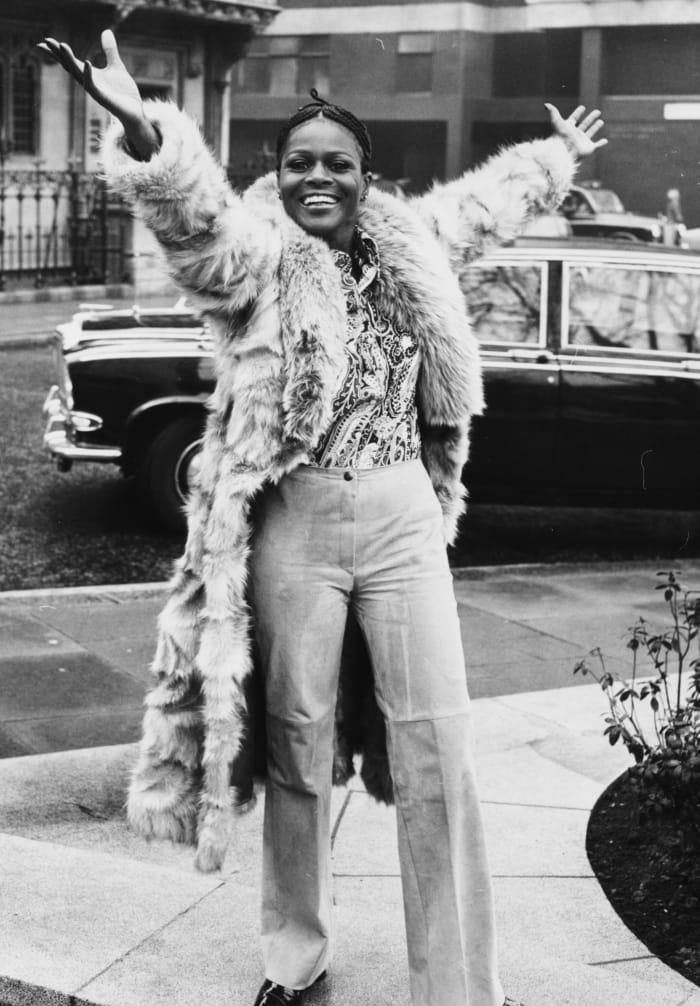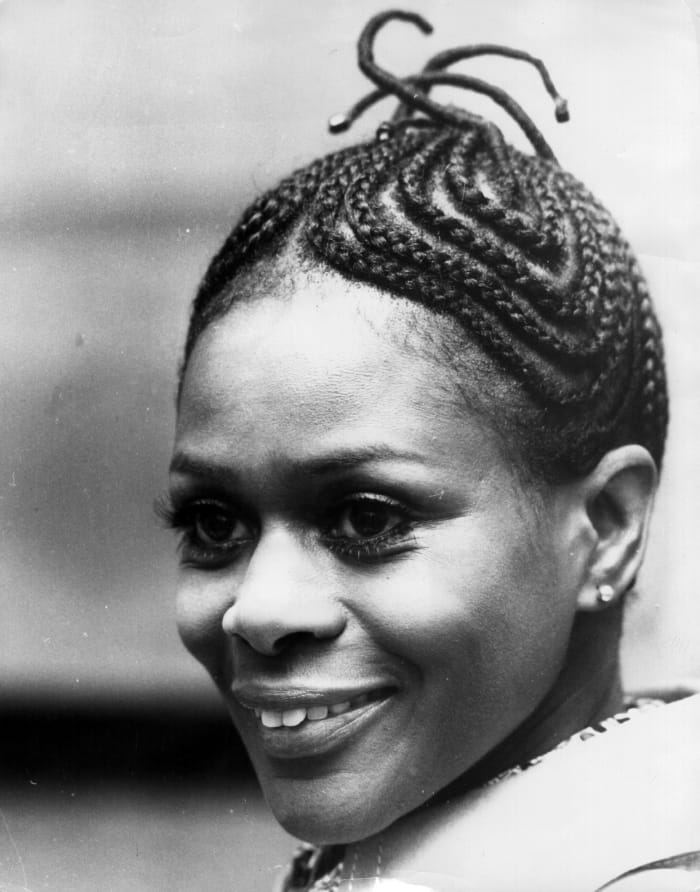There are perfectly good celebrity style moments, and then there are the looks that really stick with you, the ones you try desperately to recreate at home. In ‘Great Outfits in Fashion History,’ Fashionista editors are revisiting their all-time favorite lewks.
Last week, a day after Cicely Tyson’s passing, Tracee Ellis Ross took a moment during a press event for her hair-care brand, Pattern Beauty, to honor the beloved actor. Ross recognized Tyson not just for her talent or her prolific, trailblazing career, but also for her commitment to celebrating, honoring and centering Black culture throughout her work. Often, that extended to her hair.
As the world mourns and remembers Tyson, various images of her iconic looks over the years have been circulated. One of my favorites, taken in London in 1973, is shown above: her oh-so-’70s fur, printed blouse and flared corduroys. The photographs of her from that day — which show her beaming at the camera, posing with her arms wide — are captivating because they put her bountiful joy, star presence and captivating personality so brightly on display. Zoom in, and what’s also striking is the significance of Tyson’s protective braided hairstyle, itself a celebration of Black culture and tradition.
In the wake of Tyson’s passing, writer Allyssia Alleyne remembered the actor as “an early champion of Black beauty” in a piece for CNN. Tyson in fact routinely made waves by proudly wearing her natural hair at a time when few Black women felt empowered to do so. She became one of the first mainstream, successful Black actors to wear her hair in an Afro. When she was cast as the first Black female actor with a recurring role on TV in the drama, on “East Side/West Side,” she wore her hair closely cropped and natural; later, she’d wear cornrows on the show.
Embracing natural hair wasn’t exactly accepted, and Tyson drew criticism from various communities — including Black hairstylists, who claimed they were losing business as a result. For Tyson, these hair choices were made with far greater intention than just simple personal style expression. Alleyne cites a quote from an interview Tyson gave in the ’70s: “[Critics of my natural hairstyles] have been brainwashed into believing that all things relating to physical blackness were bad, negative, less than good and less than white. But I knew it was just a question of time before the whole picture took on its true colors.”
Reading those words — and looking back at these photos — today, Tyson’s message remains as cogent and necessary as it was then. So as we honor the legacy of Tyson’s work as an actor, let’s also take the time to appreciate the strides she made, examples she set, trends she originated and barriers she broke simply by choosing to honor Black culture.
Please note: Occasionally, we use affiliate links on our site. This in no way affects our editorial decision-making.
Never miss the latest fashion industry news. Sign up for the Fashionista daily newsletter.








More Stories
Indian Fashion Industry
How to Write a Fashion Business Proposal
Celebrity Pets – Pet Supplies for the Rich and Famous